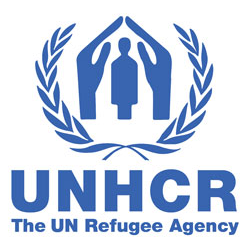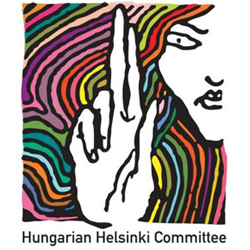Main Debate
What is the concrete impact of the explicit recognition of the right to seek and receive asylum by the American Declaration of the Rights and Duties of Man and of the right to seek and be granted asylum by the American Convention on Human Rights in relation to the incorporation of the principle of non-refoulement in a broader manner in the American Convention on Human Rights (Art. 22.8). Is there a right of non-refoulement in the Americas for aliens under certain grounds?
Main Points
- Relevance of the regional framework of human rights protection in ensuring the principle of non-refoulement in the Americas.
- Comparison, in theoretical and practical terms, between the protection offered by the European Convention on Human Rights and the Inter-American Convention on Human Rights
- Recent evolution of the principle of non-refoulement by the human rights organs of the Inter-American System and its use to protect the right to family unity, right to health, etc.
Treaties
- Inter-American Convention against Terrorism, 03 June, 2002 (Art. 15).
- Inter-American Convention on the Elimination of All Forms of Discrimination against Persons with Disabilities, 7 June 1999.
- Inter-American Convention on the Forced Disappearance of Persons, 9 June 1994.
- Inter-American Convention on the Prevention, Punishment and Eradication of Violence against Women, 9 June 1994.
- Inter-American Convention on International Traffic in Minors, 18 March 1994, OAS Treaty Series No. 79.
- Protocol to the American Convention on Human Rights to Abolish the Death Penalty, 8 June 1990, OAS Treaty Series No. 73.
- Additional Protocol to the American Convention on Human Rights in the Area of Economic, Social and Cultural Rights, 17 November 1988, OAS Treaty Series No. 69.
- Inter-American Convention to Prevent and Punish Torture, 9 December 1985, OAS Treaty Series No. 67, Art. 13 par. in fine.
- American Convention on Human Rights, 22 November 1969, OAS Treaty Series No. 36, UN Register 08/27/1979 No. 17955, Art. 22.8.
Soft Law
Cases
Article 22.8
- Case Pacheco Tineo v. Bolivia. Judgment of 25 November 2013, Inter-American Court of Human Rights, parr. 151-153. (The Court highlights that the principle of non-refoulment is both broader in the Inter-American System, and is complementary to the protection accorded by International Refugee Law and International Human Rights, and is reinforced by the recognition of the right to seek and receive asylum, as enshrined in the regional human rights instruments).
Article 8
- Case Baena Ricardo and others v. Panama. Judgment of 2 February 2001, (the Court states that the minimum due process guarantees set forth in Article 8.2 must be observed in the course of an administrative procedure, as well as in any other procedure leading to a decision that may affect the rights of persons).
Article 8.2
- Case Tribunal Constitucional v. Peru. Judgment of 31 January, 2001, Inter-American Court of Human Rights, parr. 68-71. (The Court establishes that the minimum judicial guarantees should be respected in any State act related to the determination of rights of individuals and that they are not restricted to procedures of criminal nature).
Advisory Opinions
- Advisory Opinion on "Rights and Guarantees of Children in the Context of Migration and/or in Need of International Protection" OC-21/14, Inter-American Court of Human Rights (IACrtHR), 19 August 2014, (the Court refers to the the principle of non-refoulement in international refugee law, and particularly to its evolution in the Americas from a human rights perspective).
- Advisory opinion on the juridical condition and rights of the undocumented migrants, 17 September 2003, (OC-18/03, Series A Nº 18) (the fundamental principles of equality and non-discrimination, as rules of jus cogens, entail erga omnes obligations of protection that bind all states and affects third countries as well, regardless of any circumstance or condition of a person concerned, including his/her regular or irregular migrant status).
Provisional Measures
- Provisional measures in the case of Haitian and Haitian-origin Dominican persons in the Dominican Republic, 18 August 2000, in order that the Dominican Republic refrains from deporting or expelling from its territory two of the applicants, that it enables the immediate return to its territory of two others and that it enables the immediate family reunification on its territory of two applicants with their minor children.
- Provisional measures, 12 November 2000, in order that the Dominican Republic stops the massive expulsion of foreigners and guarantees the requirements of due process in cases of deportation.
Inter-American Commission on Human Rights
Individual Petitions
- Merits of the case John Doe and others v. Canada, Report No. 78/11, 21 June 2011, (Case 12.586) (due process of law for persons seeking asylum in a foreign territory and direct-back policy). The Commission concluded that Canada was responsible for the violation of articles XXVII and XVIII of the American Declaration for not protecting the right of the alleged victims to seek and receive asylum in a foreign territory, for not making a basic individualized assessment on the risk of refoulement, and not having permitted the John Does to seek recourse before a competent court to challenge the direct-back decisions to United States without an assessment of their asylum claims.
- Merits of the case Wayne Smith, Hugo Armendariz et al v. United States of America, Report No. 81/10, 12 July 2010 (Case 12.562) (due process of law on a case-by-case basis in immigration removal proceedings, humanitarian defenses to removal, application of balancing test to individual cases that duly considers humanitarian defenses, and right to family life). The Commission concluded that in expulsion cases the State should permit the alleged victims to present their humanitarian defenses to removal, that a competent, independent immigration judge should apply a balancing test to individual cases that duly considers their humanitarian defenses and can provide meaningful relief, and the implementation of laws to ensure that non-citizen resident’ right to family life are protected and given due process on a case-by-cae basis in immigration removal proceedings.
- Admissibility of the case Rumaldo Juan Pacheco Osco y Otros v. Bolivia, Report No. 53/04, 13 October 2004, (Petition No. 301/2002) (possible violation of the right to personal integrity, to personal liberty, to judicial guarantees, the rights of the child, the freedom of movement and residence with regard to refugees recognised in Chile wishing to reside in Bolivia). This case has already been decided by the Inter-American Court (see reference above).
- Admissibility of the case 120 Cuban citizens and 8 Haitian citizens detained in Bahamas, Report No. 6/02, 3 April 2002, (Petition No. 12.071) (indications of the violation of Art. 27 of the American Declaration of the rights and duties of man, concerning the right to seek and receive asylum).
- Merits of the case Rafael Ferrer-Mazorra and others v. United States, Report No. 51/01, 4 April 2001, (Case No. 9903) (possible violation of the Articles 1, 2, 17, 18 and 25 of the American Declaration of the Rights and Duties of Man, with regard to the deprivation of liberty of the applicants, based on their illegal entry to US territory).
- Merits of the case interdiction of Haiti, Report No. 51/96, 13 March 1997, (Case No. 10.675) (the Commission considered that the USA violated the right of Haitian citizens to seek and receive asylum when returning them to their country of origin despite that their life would be in danger there, after a summary proceeding of their asylum claims).
Annual Reports
- Annual Report (2003), 29 December 2003, (OEA/Ser.L/V/II.118) (obligation of States to ensure a reasonable possibility for asylum-seekers to substantiate their claim for refugee status and the reasons for which they fear being tortured if sent to a certain country, including the country of origin).
- Annual Report (1993), 11 February 1994, (OEA/Ser.L/V/ll.85) (analysis of the universal and regional legal framework applicable for refugees, internally displaced and stateless persons, specific analysis of the situation in Colombia, El Salvador, Guatemala, Haiti, Nicaragua and Peru).
Special Reports
- Report on Immigration in the United States: Detention and Due Process, 30 December 2010, (OEA/Ser.L/V/II. Doc. 78/10). (The Commission severely denounces many forms of detention of foreigners in the US).
- Report on Terrorism and Human Rights, 22 October 2002, (OEA/Ser.L/V/ll.116) (in the framework of anti-terrorist policies, the Commission analyses the situation of migrant workers, asylum-seekers, refugees and foreigners, particularly with regard to the right to liberty and security, to humane treatment, to due process and fair trial, and to non-discrimination).
- Recommendation on Asylum and International Crimes, 20 October 2000, (OEA/Ser./L/V/II.111, Doc. 20 Rev.) (recommendation for States to refrain from granting asylum to supposed perpetrators of international crimes).
Country Reports
- Report on Haiti, ’Failed Justice or Rule of Law?’ Challenges Ahead for Haiti and the International Community, 26 October 2005, (OEA/Ser.L/V/II.123) (analysis of the deportation of Haitian citizens from other countries and the preventive detention of foreigners).
Precautionary Measures
- Precautionary measures, 27 January 1999, in order that the Bahamas suspend the deportation of a Cuban family, the members of which asked for asylum and that this process should respect the relevant procedural guarantees.
- Precautionary measures, 14 August 1998, in order that the Bahamas refrain from deporting a group of 120 Cuban nationals who applied for refugee status, while the Commission is examining in detail their allegations of human rights violations.
- Precautionary measures, 16 January 1998, in order that Canada refrains from deporting a Sri Lankan national, recognised by Canada as refugee in 1991, while the Commission is investigating the human rights violations reported in the application.
General Assembly of the Organisation of American States
Resolutions
- Resolution AG/RES. 1971 (XXXIII-O/03), 2003. The protection of refugees, returnees, and stateless and internally displaced persons in the Americas.
- Resolution AG/RES. 1504 (XXVII-O/97), 1997. The situation of refugees, returnees, and internally displaced persons in the hemisphere.
- Resolution AG/RES. 838 (XVI-O/86), 1986. Inter-American action on behalf of refugees.
Readings
Core
- UNHCR, ‘The Inter-American System for the protection of human rights and forced displacement’. Document prepared for the Joint Council of Europe/UNHCR Colloquium on the Role of Regional Human Rights Courts in Interpreting and Enforcing Legal Standards for the Protection of Forcibly Displaced Persons, held in Strasbourg, France, on 15-16 June, 2011).






